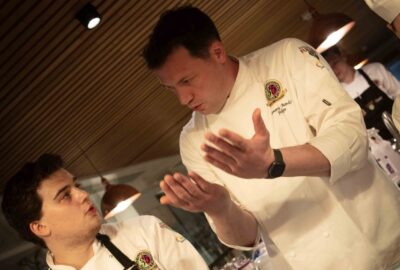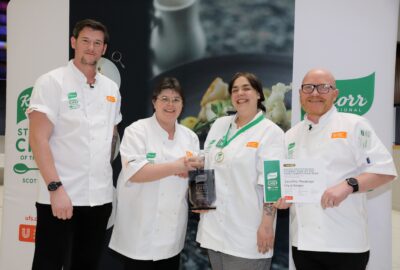Slashed prices, promotional meal deals and a greater variety of grub… These are the three key reasons students say they’ll ditch the takeaways to eat at university outlets
A study of 1,500 students reveals a fascinating insight into the eating and drinking patterns of today’s uni community. ‘The Students Eating and Drinking Habits Report 2018’ is published by The University Caterers Organisation (TUCO) – and is their latest data since 2014.
The findings reveal welcome trends around key aspects of university catering operations. For example, those rating the quality of food or ingredients as very good is up from 21% to 26% and for the variety and choice on offer from 19% to 24%. While cost is the biggest negative issue students have – 39% saying it’s poor or very poor – the proportion rating it very good is up from 14% to 17%.
Fat and sugar are jointly the biggest factors in students’ meal choices.
42% of female students consider the fat content compared to 34% for men. The same goes for calories (43% compared to 31%). Being organic was a bigger consideration for students from overseas (18%) than it was for British students (11%).
The significant change from 2014 is concern about sugar content. While 35% said it was a factor in 2014 that’s now risen to 40%.
Compared to TUCO’s last survey, 25% of students say they can’t afford to cook from scratch every day, compared to 18% of those quizzed in 2014.
Students are more likely to have water at breakfast (63% doing so more than three times a week), with tea still being more popular (38%) than coffee (30%) to start the day off. Ethnic foods are becoming more popular among students too, with those eating ethnic foods three or more times a week for lunch increasing from 11% in 2014 to 14% in 2018 and those consuming regularly in the evening going up to 27% from 23%.
Mike Haslin continues:
Our report found there has been a significant culture shift from cost being the dominant driver to convenience and conscientious consuming all now playing an important role in decision making. “Additionally, with key factors such as healthier eating, world cuisine and overall dining experience, it is important for caterers to be aware of the latest food and beverage trends, especially in comparison to the offerings from high street outlets to be able to respond to students’ preference.
Desired Changes to Opening Hours
The 13% of students who rated opening hours for the food and drink establishments at their university as quite poor or very poor were asked when they would like these establishments to open. Their answers suggest longer opening hours could be the key to winning them over. 25% wanted them to open into the evening 7pm-9pm.
Snack-sized facts at a glance :
92% have access to a kitchen with full cooking facilities within their accommodation
34% believe university establishments offer POOR value for money
27% are concerned about whether food is Fairtrade, ethically farmed or free range
90% rate the quality of food at university outlets as either ‘fair’ or ‘good
8% are vegetarian and don’t eat fish
Campus Cafes are the most frequented of all university outlets
There has been a significant culture shift from cost being the dominant driver to convenience and conscientious consuming all now playing an important role in decision making
You can study the full findings at: https://tuco.ac.uk/grow/


